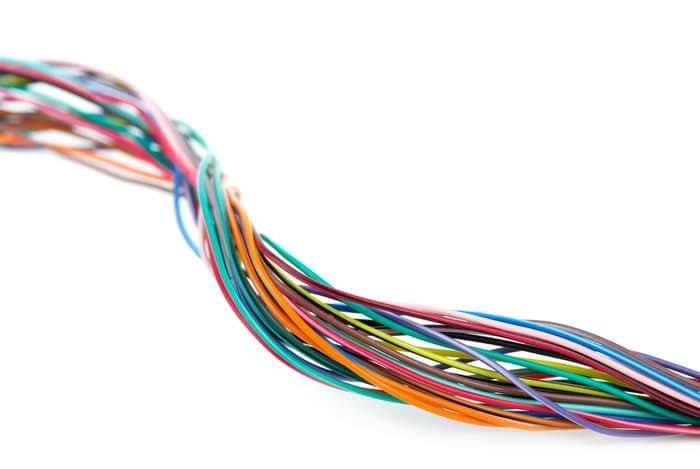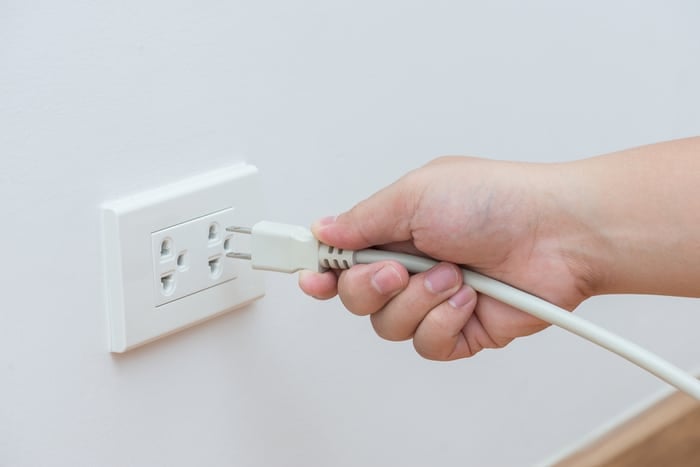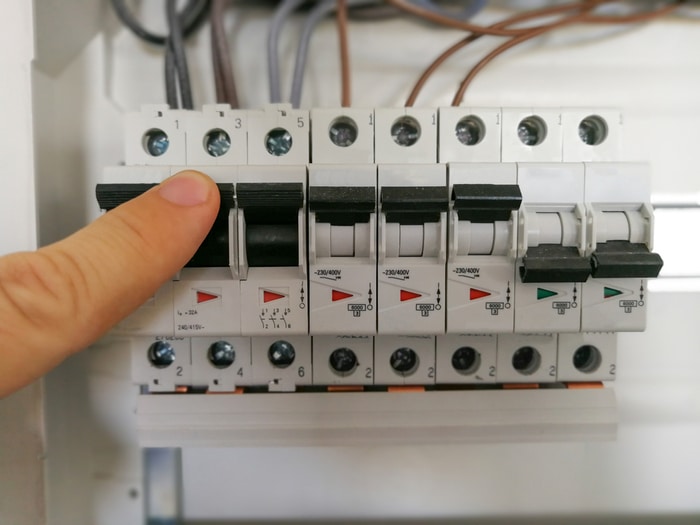We've independently reviewed this article to make sure it's as accurate as we can make it.
To find out more about our article creation and review process, check out our editorial guidelines.
Is your washer tripping more circuit breakers than a massive blackout?
That sucks! But as inconvenient as this situation might be, you might find comfort in knowing that you’re not alone, and that this is actually quite a common issue.
I understand how, despite this, the whole situation can be very frustrating, especially if you’re in urgent need of washing a big pile of clothes.
But don’t worry, you came to the right place for answers. Below, I’ve prepared an article including some of the most common causes of this problem, as well as some simple ways to address them.
When your washer is tripping a circuit breaker, it might be due to loose wires, a bad wall outlet, or even bad wiring on your breakers. If nothing works, you might have a more complex issue on your hands, and you’ll want to call a professional for assistance.
Keep reading stop the tripping!
This piece was written in collaboration with one of our trusted appliance repair experts, James Blackford.
With a career that spans over 16 years, James is a master of his trade. During his time working with appliances, he has overseen several multistate projects and coordinated large teams of technicians as Field Operations Manager for companies such as Sears Holdings.
These days, he runs his own business and is also a Master Technician for SquareTrade. James takes pride in his local community in Clovis, NM, where he helps thousands of homeowners every year.
Why Your Washer Is Tripping Your Breakers
In my experience, one of the most common reasons behind a situation like this is a short circuit being caused by faulty wiring inside the appliance. Sometimes, wires can come loose and start touching the frame of the unit’s cabinet while the drum spins, which is not normal.
Breakers normally trip as a safety measure when they detect power surges or brief electrical spikes in order to protect your home’s electrical layout. So, if this happens whenever you turn on your washer and start a cycle, chances are you need to take a closer look at it.
I hopped on a call with James to ask him about this, and he had some very interesting insights, as well as a couple of tips to try if you’re currently experiencing this.
#1 Check for Loose Wiring
Washers, not unlike dryers are in constant movement. And while manufacturers anticipate this and design them to be sturdy, sometimes things will come apart.
Over the years, the frequent spinning of the drum can cause wires to fall out of their designated places and start touching the metal frame of the machine, which is a great way to cause a short circuit.
At first, this might only cause your breakers to trip, but if you let it happen repeatedly, sooner or later, the appliance itself might start having problems, and could even start to smell like burning.

According to James, the best way to go about preventing this is to sit comfortably in front of your washer, see if it always trips at a similar running time and cycle, and then look inside it.
“If the breaker is tripping regularly, you probably have some exposed wires from your cable harness that are touching the frame of the cabinet… I’d definitely recommend unplugging the washer and seeing which wires you can visually inspect. If you don’t see anything obvious, take notes during the cycle and see if it happens randomly”, he explained.
#2 Check the Wall Outlet
Provided you don’t see any loose wiring or cables that are touching the washer’s metal frame, you might want to move on to consider other elements in the power supply chain.

In situations like these, James recommends getting a different appliance that pulls a lot of amps, such as a microwave or a space heater, and plugging them into the wall outlet your washer is normally connected to.
If your breakers keep tripping, you’ll know 100% that your washer is not to blame. In this case, it’s either your wall outlet that’s faulty or something between it and your breakers.
#3 Check the Breakers
Similar to what was mentioned in the section above, if your breakers keep tripping, no matter what you plug into the outlet your washer was connected to, the issue likely lies elsewhere. There are many ways to test whether a wall outlet is bad, such as using a multimeter and testing for continuity.

Ruling out the wall outlet as the culprit means that you’ll be able to pinpoint the circuit breakers and their wiring as the source of the problem. This not only helps save time but also money when you call a professional in.
#4 Call a Professional
In the event that neither the washer nor the wall outlet or the breakers were to blame for this situation, it’s time to call a professional to take a closer look and deal with the issue.
Whenever there’s an obvious culprit (like a loose wire, a bad outlet, etc.), it’s easier to take matters into your own hands as long as you’re comfortable. However, since we’ve already exhausted all the “simple” answers, it’s time to start doing more complex things, such as tracing circuitry with a meter, which is something a certified technician is more experienced in.
I know getting professional help means spending money and having to coordinate schedules, but the good news is that you likely already narrowed down the possibilities, thus decreasing the number of hours the technician will have to be at work!
Conclusion
That about sums it up!
When your washer keeps tripping your circuit breakers, doing your laundry can become excessively channeling and frustrating.
Luckily, as I hope this piece has helped you better understand, in most cases addressing the common causes behind this is very easy and quick. More often than not, all you have to do is look out for some loose wires and double-check the integrity of the wall outlet you plug the appliance into.
Thank you very much for sticking with me all the way to the end. If this article was helpful and answered your questions please be sure to check out our other incredible resources below and consider subscribing to our newsletter.
On the site, we have all sorts of guides for daily appliance issues, as well as other informational pieces, including washer best practices, and costs to run different models and sizes.
I wish you all the best!
— Craig.







